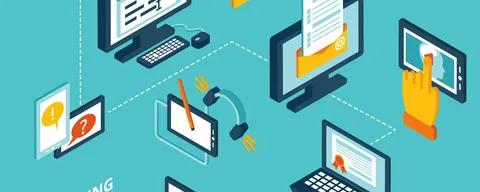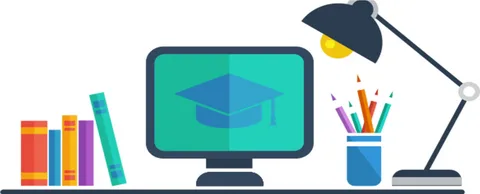Top Tech Innovations Transforming UK Classrooms in 2025
Summary
Education in the UK is undergoing a remarkable transformation, driven by tech innovations that are reshaping how students learn and teachers teach. From immersive virtual reality experiences to AI-driven personalised learning, these advancements are redefining the future of education with tech. In this blog, we explore the cutting-edge technologies making waves in UK classrooms and the profound tech impacts on the education system.
Introduction
As the digital age continues to evolve, so does the education landscape in the UK. With technology at its core, classrooms are no longer confined to traditional methods of teaching. The rise of tech innovations is enhancing student engagement, improving access to resources, and creating a dynamic learning environment. In 2025, the focus is not just on adopting new tools but on integrating them meaningfully to prepare students for a tech-driven world.
Let’s dive into the top tech innovations transforming UK classrooms and their potential to reshape the education system.
1. Virtual Reality (VR) and Augmented Reality (AR)
Virtual and augmented reality are taking students beyond textbooks and into immersive learning environments. Whether it’s exploring historical landmarks or conducting virtual science experiments, these technologies make learning interactive and memorable.
Applications in UK Classrooms:
- History lessons with VR tours of ancient sites like Stonehenge or the Tower of London.
- AR apps overlaying 3D models in science and geography lessons for better understanding.
- Virtual field trips to global destinations without leaving the classroom.
Tech Impacts on the Education System: These technologies enhance engagement and cater to different learning styles, helping students grasp complex concepts more effectively.

2. Personalised Learning and Beyond
AI is revolutionising the education landscape by providing customised learning experiences. Through adaptive learning platforms, students receive content and feedback tailored to their progress and needs.
Key AI Tools in UK Education:
- Learning Management Systems (LMS): Platforms like Canvas and Moodle use AI to analyse student performance and suggest resources.
- AI Tutoring: Apps like Squirrel AI provide real-time support, simulating one-on-one teaching.
- Automated Assessments: AI tools assess assignments and offer instant feedback, saving time for teachers.
Future of Education with Tech: AI empowers teachers to focus on mentoring while technology handles routine tasks, ensuring personalised attention for every student.
3. Making Learning Fun and Rewarding
Gamification is transforming lessons into engaging experiences through game-like elements such as rewards, leaderboards, and challenges. This approach fosters motivation and encourages active participation.
Examples in UK Classrooms:
- Math apps that reward students with points for solving problems correctly.
- Gamified quizzes that make test preparation enjoyable.
- Coding platforms like Minecraft: Education Edition teaching programming through interactive games.
Tech Innovations at Play: Gamification promotes critical thinking, collaboration, and problem-solving skills, making education enjoyable and impactful.
4. Seamless Collaboration and Accessibility
Cloud technology is streamlining collaboration between students, teachers, and parents. Platforms like Google Workspace for Education and Microsoft Teams enable seamless sharing of resources, assignments, and updates.
Benefits for the Education System:
- Students can access coursework anytime, anywhere.
- Teachers can collaborate on lesson plans and share teaching materials.
- Parents stay informed about their child’s progress through shared dashboards.
Tech Impacts on Education: Cloud computing ensures equitable access to education by breaking down geographical barriers and promoting digital inclusion.

5. Robotics and Automation: Practical Learning in Action
Robotics is entering classrooms to inspire innovation and creativity. By learning to build and program robots, students develop critical skills in STEM (Science, Technology, Engineering, and Mathematics).
Practical Applications:
- Robotics kits used in after-school clubs to foster hands-on learning.
- Automation tools helping teachers schedule tasks like attendance tracking.
- Robotics competitions encouraging teamwork and innovation among students.
Future of Education with Tech: By equipping students with robotics knowledge, the UK education system prepares them for future careers in technology and engineering.
6. Big Data Analytics: Insights to Drive Progress
Data analytics is enabling educators to track and improve student outcomes more effectively. By analysing data trends, schools can identify areas for improvement and implement data-driven strategies.
Applications in UK Schools:
- Tracking student attendance, performance, and engagement patterns.
- Identifying at-risk students and providing timely interventions.
- Measuring the effectiveness of teaching methods and adapting accordingly.
Tech Innovations’ Role: Big data fosters a proactive approach to education, ensuring every student’s needs are met.
7. 5G Connectivity: Unlocking the Potential of EdTech
With the rollout of 5G, UK schools are experiencing faster and more reliable internet, enabling real-time collaboration and streaming of high-quality educational content.
Advantages in Education:
- Seamless virtual classrooms and video conferencing.
- Enhanced AR/VR experiences without latency issues.
- Real-time access to global resources and experts.
Tech Impacts on the Education System: 5G connectivity ensures that even remote schools can leverage advanced technologies, bridging the digital divide.

8. Blockchain for Education: Secure and Transparent Records
Blockchain technology is providing secure ways to manage academic records and credentials. This decentralised system ensures data integrity and easy verification of qualifications.
Use Cases in the UK:
- Digital diplomas and certificates that are tamper-proof.
- Transparent tracking of student achievements and credits.
- Streamlined processes for university admissions and job applications.
Future of Education with Tech: Blockchain builds trust in the education system by ensuring transparency and accountability.
9. Internet of Things (IoT): Smart Classrooms
IoT is transforming traditional classrooms into smart learning spaces. Connected devices such as smartboards, sensors, and interactive screens create an interactive and efficient environment.
Examples in UK Schools:
- Smartboards displaying dynamic content and real-time updates.
- Sensors monitoring classroom conditions like temperature and lighting for optimal learning.
- IoT devices tracking student attendance and engagement.
Tech Innovations Driving Change: IoT enhances the classroom experience, making it more interactive and conducive to learning.
10. EdTech Startups: Pioneers of Innovation
The rise of EdTech startups in the UK is accelerating the adoption of advanced technologies in schools. These companies are addressing specific challenges and introducing innovative solutions.
Notable Examples:
- Platforms like Century Tech offering AI-driven learning experiences.
- Apps providing mental health support tailored to student needs.
- Startups creating tools for remote and hybrid learning.
Tech Impacts on the Education System: Startups bring fresh ideas and agility, pushing boundaries and inspiring widespread change in classrooms.
Conclusion
The future of education with tech is unfolding rapidly in the UK, with innovations reshaping classrooms and enhancing learning outcomes. From immersive VR experiences to AI-driven personalisation, these technologies are making education more accessible, engaging, and impactful.
As we move deeper into 2025, the tech impacts on the education system will continue to grow, equipping students and teachers with tools to thrive in a digital world. By embracing these innovations, UK schools are not just keeping pace but setting benchmarks for education globally.



Post Comment